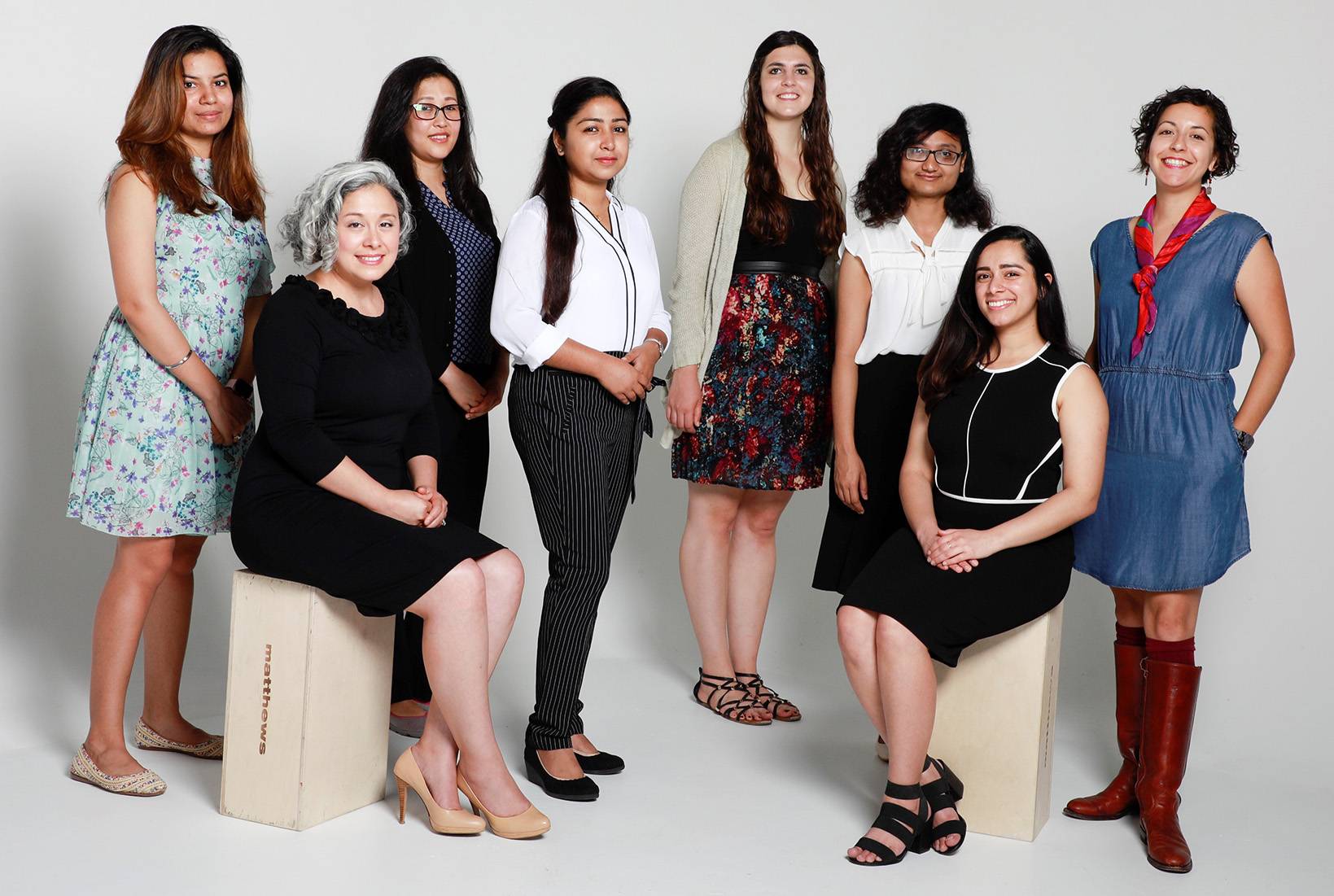Graduate students succeed in obtaining external funding
Julie Cooper | October 16, 2019

Two Texas State University doctoral students in anthropology each recently received $150,000 through the National Institute of Justice’s Graduate Research Fellowship program. With the addition of these awards, the total amount of external funding that graduate students have received in the last three years has grown to almost $2 million.
One of these students, Courtney Siegert, will be conducting a study titled, “A Multifactorial Approach to Estimating Geographic Origin of Hispanics Using Cranial and Dental Data." Her doctoral advisor is Dr. Kate Spradley, a professor of anthropology with the Forensic Anthropology Center (FACTS) at Texas State. The other student, Devora Gleiber, is working on a project titled, “Detection and Diagnosis of Mobility Impairment via Cortical and Trabecular Bone Properties to Aid in the Identification of Human Remains in a Medicolegal Context.” Gleiber’s doctoral advisor is Dr. Danny Wescott, director of FACTS.
Siegert and Gleiber’s fellowships are some of the largest awards available to graduate students in any discipline. “Many awards are less than $10,000,” said Dr. Andrea Hilkovitz, the external funding coordinator for The Graduate College. “Because graduate student awards are significantly smaller than faculty awards, reaching the $2 million threshold is a testament to the large and increasing numbers of graduate applicants who are submitting competitive applications for external funding.”
Because of this student success, The Graduate College will soon add a second research coordinator.
“It is very exciting that we have this success given that the majority of our programs are for master’s students. In addition to the financial benefit to the students, external funding success contributes to the university’s reputation and our ability to attract and retain highly qualified students,” said Dr. Andrea Golato, dean of The Graduate College.
This year, Hilkovitz counseled 383 students, a 40% increase from 2017-18. In addition, she held 54 webinars and workshops on the San Marcos and Round Rock campuses. This past academic year, 96 students submitted applications for a variety of grants, scholarships and fellowships. Among the applicants, 24% were underrepresented minorities, 28% were international students and 24% were master’s students.
These applications, though, represent more than the opportunity to obtain funding. As Hilkovitz aptly puts it, “We love winning awards, of course, but our primary goal is the professional development of graduate students. Finding and applying for funding is a skillset that most graduate students want to learn and will need in their future careers, whether in academia or in industry.”
The Graduate College helps its students to develop professional skills so that they learn how to write about their studies and research in a way that is compelling and relevant to the funder. Though many of them are successful, even the students who don’t receive awards routinely tell Hilkovitz that the application process was still an invaluable experience. For example, last year The Graduate College had its largest class of applicants to the National Science Foundation’s Graduate Research Fellowship Program, a record four of which were awarded.
Even the applicants who were not selected subsequently took their reviewer comments and reformulated those essays using the skills they had learned to successfully apply for other funding or to Ph.D. programs. “No matter how you look at it, that is a win," Hilkovitz said.
For a complete list of graduate students' accomplishments, visit www.gradcollege.txstate.edu/about/accolades/accomplishments.html. Information about external funding services can be found at www.gradcollege.txstate.edu/funding/external.html.
Share this article
For more information, contact University Communications:Jayme Blaschke, 512-245-2555 Sandy Pantlik, 512-245-2922 |